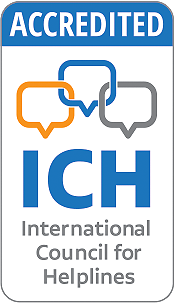
The Mental Health Association in New Jersey (MHANJ) in Ocean County (MHAOC) has several office locations:
- Toms River Office: 25 South Shore Drive, Toms River, 08753
- Manahawkin Office: 691 Mill Creek Rd (Unit 13) Manahawkin, 08050
- Lacey Office (VETS): 4 Murray Grove Lane, Lanoka Harbor, 08734
- MHAOC Admin Office: 1747 Hooper Ave Unit 15 Toms River, 08753
The MHANJ is a statewide non-profit organization that strives for mental health for children and adults through advocacy, education, training, and services. Since 1948, the MHANJ has fulfilled its mission by responding to issues raised by consumers of mental health services, working for changes and promoting policies that protect their rights and fighting the stigma that makes mental health recovery difficult. MHANJ also provides programs that directly assist individuals in need, reducing the strain on limited government resources.
We continue to be a driving force in our advocacy efforts, working to ensure that all individuals working on their wellness & recovery have a voice.
SERVICES & PROGRAMS AVAILABLE IN OCEAN COUNTY
- MENTAL HEALTH PEER SERVICES & PROGRAMS
- Journey To Wellness (JTW)
- Peer Outreach Support Team (POST)
- Veteran Peer Support (VPS)
- United by Wellness (UBW)
- RECOVERY PEER SERVICES & PROGRAMS
- ROADS Peer Recovery Center (ROADS)
- Moms Offering Recovery Experience (More Project)
- Pathways to Success (P2S)
- SENIOR PEER SERVICES & PROGRAMS
- Senior Success Program (SSP)
- Ocean Allies Resource Center (OARC)
- DISABILITIES PEER SERVICES & PROGRAMS
- Stepping into Success (SIS)
- Ocean Allies Resource Center (OARC)
- BASIC NEEDS TO SUPPORT YOU ON YOUR JOURNEY
- Housing, Outreach, Prevention, & Education Project (HOPE Project)
- Resources, Outreach, & Opportunities for Tomorrow (ROOTS)
- EMPLOYMENT PEER SERVICES & PROGRAMS
- Pathways to Success (P2S)
- Stepping into Success (SIS)
- VETERANS PEER SERVICES & PROGRAMS
- Veteran Peer Support (VPS)








